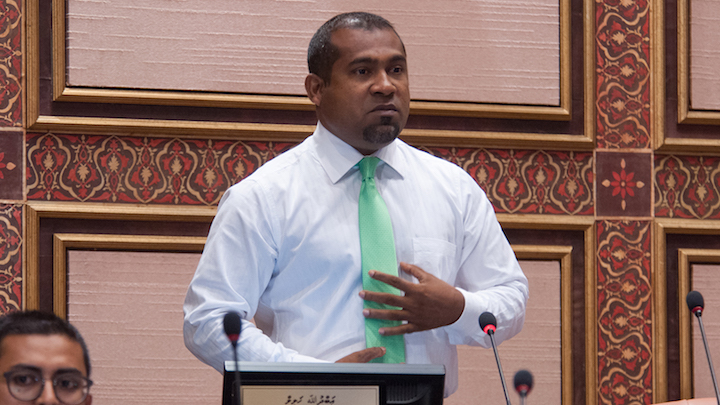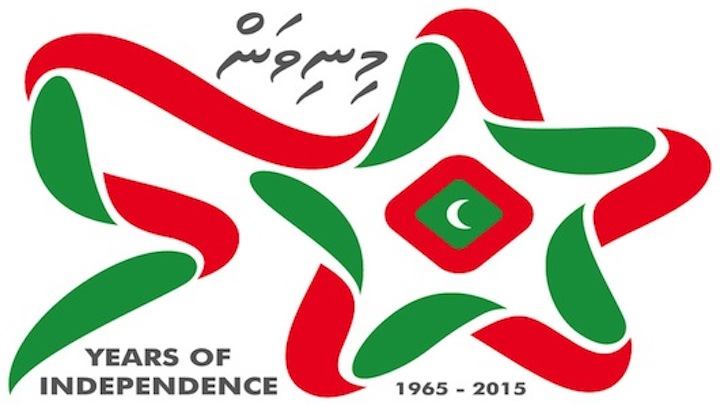Progressive Party of Maldives (PPM) MP Abdulla Khaleel has proposed changes to the decentralisation law to not elect local councils in islands with a population lower than 500 people.
Presenting the amendment bill at today’s sitting of parliament, Khaleel said the Local Government Authority (LGA) in consultation with the atoll council will make administrative arrangements to provide municipal services in islands without elected councillors.
The administrative arrangements can be made in accordance with the wishes of the community, Khaleel said.
“So I don’t believe it will cause too many problems for populations lower than 500,” he said.
During the ensuing debate, opposition MPs argued that the proposed change amounted to discrimination against small island communities.
If the amendments are passed, Jumhooree Party MP Moosa Nizar Ibrahim said small communities would become marginalised, neglected and deprived of basic services.
Several pro-government MPs meanwhile said that the old system of island and atoll chiefs directly appointed by the president during the 30-year reign of former President Maumoon Abdul Gayoom was much better suited to the Maldives.
PPM MP Saudhulla Hilmy said the local government system introduced in 2011 has been a “bitter” experience and suggested removing the decentralisation provision from the constitution.
Amendments
Khaleel also proposed extensive changes to the composition of local councils. The amendments state that a four-member council will be elected in islands with a population between 500 and 5,000 people and a six-member council for islands with a population between 5,000 and 10,000.
Apart from the president and vice president of island, atoll, and city councils, Khaleel proposed making other councillors part-time members who would not be involved in day-to-day activities.
The part-time councillors will only attend meetings to finalise decisions.
Atoll councils will meanwhile be comprised of two elected members and a councillor from each island in the atoll. If the revisions are passed, Khaleel said the government would save MVR100 million a year.
Khaleel’s amendments represent a major overhaul of the law and comes after the pro-government majority in parliament passed a third and fourth amendment to the Decentralisation Act last month.
President Abdulla Yameen ratified the fourth amendment today.
The amendments passed by parliament on June 29 state that by-elections will not be held if an island, atoll, or city councillor resigns one year after the local council elections.
Local councils are elected for a three-year term. The resignation of councillors have triggered several by-elections since the local government system was introduced in February 2011.
However, by-elections must still be held for vacant seats if a council does not have a quorum to hold meetings or if a councillor resigns within the first year.
In late June, President Yameen also ratified a third amendment to the decentralisation law that authorised the president to determine the public services to be provided by the opposition-majority Malé and Addu city councils.
The amendments state that municipal services the president decides not to assign to the council will be transferred to government ministries.
During the parliamentary debate last month, MPs of the main opposition Maldivian Democratic Party (MDP) heavily criticised the proposed changes, contending that it would “destroy” the decentralisation system and reduce the city council to an “administrative desk at the president’s office.”
Overhaul
The current model of more than 1,000 elected councillors approved in 2010 by the then-opposition majority parliament was branded “economic sabotage” by the MDP government, which had proposed limiting the number of councillors to “no more than 220.”
The new layer of government introduced with the first local council elections in February 2011 cost the state US$12 million a year with a wage bill of US$220,000 a month.
Under the 2010 decentralisation law, a five-member council is elected in islands with a population of less than 3,000, a seven-member council for islands with a population between 3,000 and 10,000, and a nine-member council for islands with a population of more than 10,000.
City councils comprise of “an elected member from every electoral constituency of the city”, and atoll councils comprises of “elected members from the electoral constituencies within the administrative division.”
The presidents of island councils currently receive a monthly salary and allowance of MVR15,000 (US$973) while council members receive MVR11,000 (US$713). The mayor of Malé is paid MVR45,000 (US$2,918) a month.
Other changes proposed by Khaleel meanwhile include providing a seat on island councils for the chair of the island’s women’s development committee and forming advisory committees on economic, social, and environmental affairs.
The LGA – the oversight body tasked with coordinating with local councils – will be comprised of five members, including a cabinet minister, the chief executive for local government, and three members selected by parliament with experience in gender issues, business, and governance or public administration.

